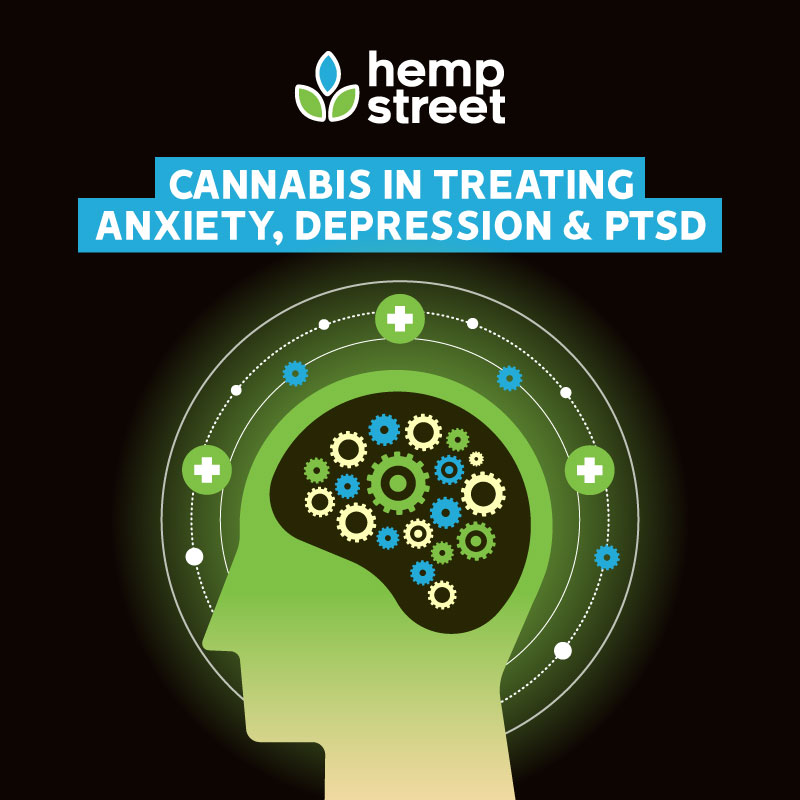Cannabis in Treating Depression.:-The sound of it triggers widely different reactions from people across the world. This is primarily a consequence of the idea of it being a ‘drug’ coupled with the long ongoing debate over the legalisation of it, in different parts of the world. Although many countries have legalised it, it will not be wrong to say that they have not accepted it. The driving cause behind it has been the fact that, while intensive research has been conducted to draw the ills of the cannabis plant, there has been a dissipated approach towards gathering evidence about the benefits of it. Hence, in a country like India, cannabis otherwise known as weed, marijuana, ganja, etc can be easily passed as a ‘sign of danger’. Any person associated with it, in any manner, either needs to face stern action or needs to be kept away from. In order to combat this mentality and establish a balanced opinion about the plant, it is paramount that the general public be made aware of the working of cannabis, as a drug, in one’s body.
Cannabis Constituents
Medicinal Cannabis, a much lesser known term in the country, is made up of over 400 chemical compounds ranging from cannabinoids, terpenoids, etc. to fatty acids. The research into medicinal cannabis, still being at a nascent stage, has distinctly identified only two of the 61 cannabinoids, delta-9 tetrahydro-cannabinol or THC and Cannabidiol or CBD, respectively. THC, recognised for its intoxicating effects, has been proven to act on CB1 receptors, that are present throughout the body. CB1 receptor is one of the many cannabinoid receptors that is most sufficiently present in the brain. It’s effect is thus, felt significantly in the brain as THC, being an active constituent of cannabis, binds to the CB1 receptors in the brain and activates them, giving the much hyped ‘high’ to individuals who consume it. Contrary to the effects produced by THC, CBD, the only other constituent of cannabis that has been studied, is known to contain no pyshcoactive element in it, whatsoever. Hence, does not produce any intoxicating effects.
How Cannabis works in the body
While CB1 receptors are mustered in the brain and the central nervous system of the body, CB2 receptors are spread throughout the body including our heart, kidney, liver, blood vessels, etc. CB1 and CB2 receptors, the only classified receptors among the many other receptors present in the body, form the core of the Human Endocannabinoid System(ECS). Cannabinoids are known for their brisk interaction with this system. Hence, it is necessary to have a brief discussion and understanding about this system.
The Human Endocannabinoid System
The Human Endocannabinoid System, is a complex and crucial system in the body, responsible for maintaining biological balance of the body, when things go awry. ECS, literally, produces molecular cannabinoids endogenously in the body, as and when required, to sustain the body in its ideal conditions. This phenomenon of sustaining the body in its ideal conditions is known as homeostasis. ECS and homeostasis go hand-in-hand, making ECS, an integral part of the body.
CBD and it’s significance
Shifting our focus back to CBD, which is widely recognised for it’s therapeutic potential, apart from having no intoxicating effects, it is also proven to counter the effects of THC on the body. Unlike THC, CBD’s binding affinity to the CB1 receptors, is abysmally low. This is where a line can be drawn between THC and CBD when it comes to these constituents affecting the behavioral mannerisms of an individual, who is a frequent consumer of cannabis. While THC’s psychoactive effects include euphoria, relaxation when taken in lesser dosage, it also leads to anxiety, short term memory impairment when the dosage intake is high and consistent. CBD due to it’s poor binding affinity with CB1 receptors produces the opposite effect of decreasing anxiety and short term memory impairment. In today’s world, where anxiety and depression lead the charts with maximum number of people of suffering from it, cannabis, otherwise considered a stigma, it being useful in contributing towards the cure of anxiety and depression, has come out as a significant revelation.
In addition to this, there has also been scientific proof, discovered recently, about how lower dosage of THC can even lead to inhibition of anxiety. This is because, varying dosage of THC has differring effects on the neural activity of the brain and the nervous system, due to its variation in the capacity of bonding with the receptors.
Cannabis for Therapeutic Purposes
Such discoveries have been potential reasons for encouraging researchers across the world to delve deeper into the use of CPT, i.e, Cannabis for Therapeutic Purposes. Studies have found that the use of cannabis does not contribute to any individual indulging either in self-harm or in harm to others. Experiences in medical practice have substantiated that Dronabinol, a synthetic form of THC, has been effective in uplifting moods and developing a sense of well-being in individuals, when appropriate dosage is taken regularly. When it comes to the use of cannabis as a treatment for PTSD, i.e, Post Traumatic Stress Disorder, evidence mainly consists of success stories of patients. Clinical trials and scientific research is yet to be done in this regard.
Keynote
While Canadian government offers remuneration to its military officers for cannabis use pertaining to treatment of PTSD, U.S has started begetting ways for combined CBT and medication treatment for anxiety and depression patients. Other countries like Czech Republic, Spain, Uruguay, Netherlands have not only initiated their journey but have also recognised important results about the potential of medicinal cannabis. It’s high time, India breaks out of its conventional and conformist mindset and takes steps towards discarding the label of stigma, off cannabis.




